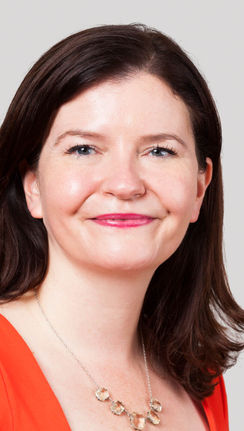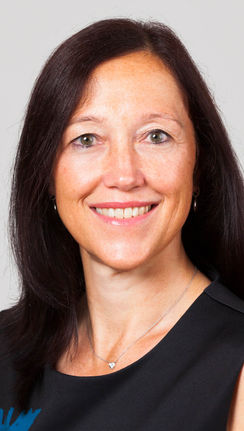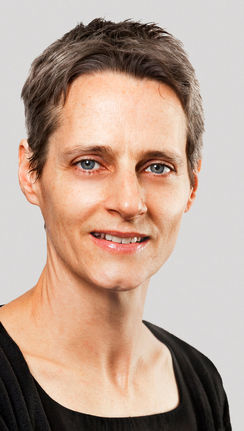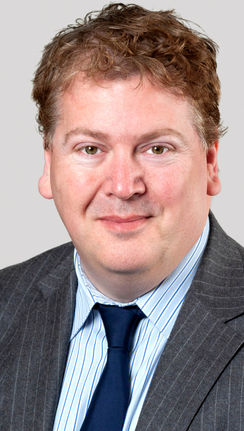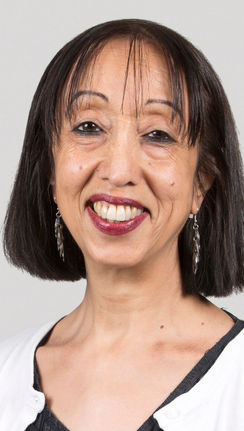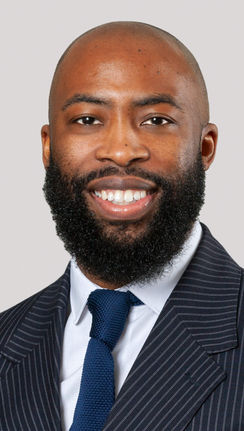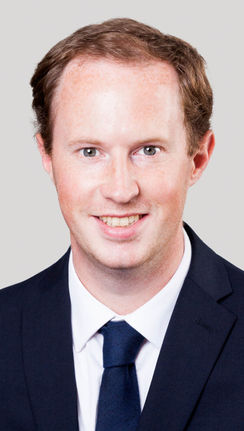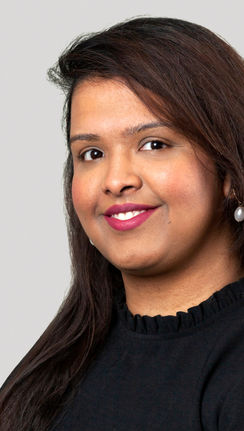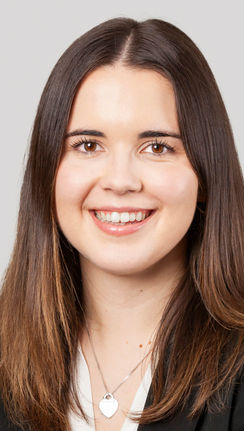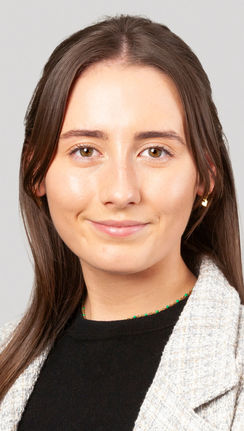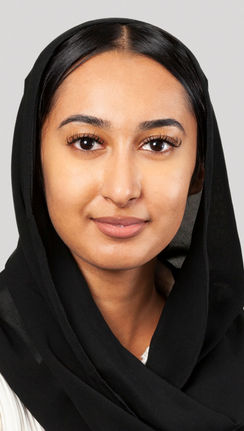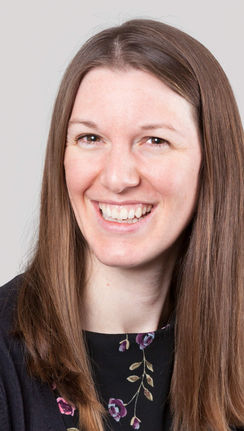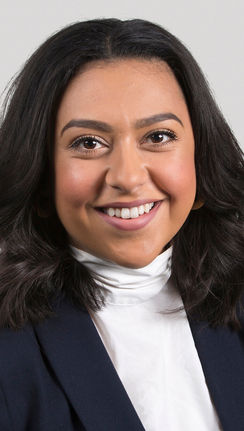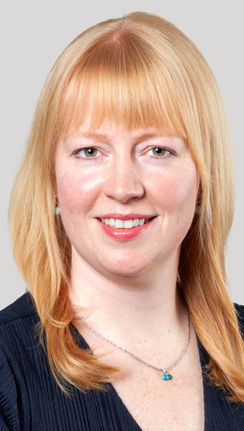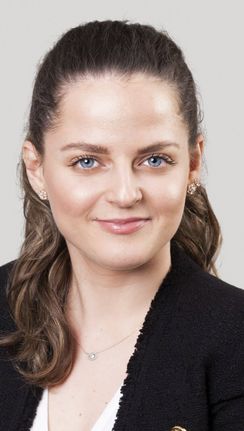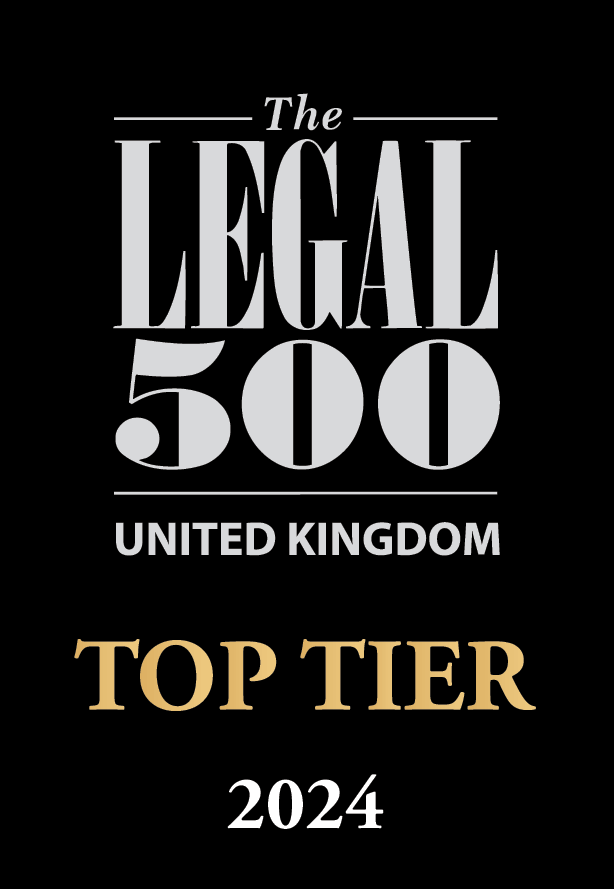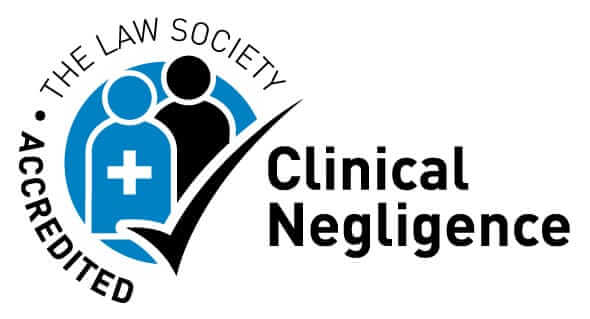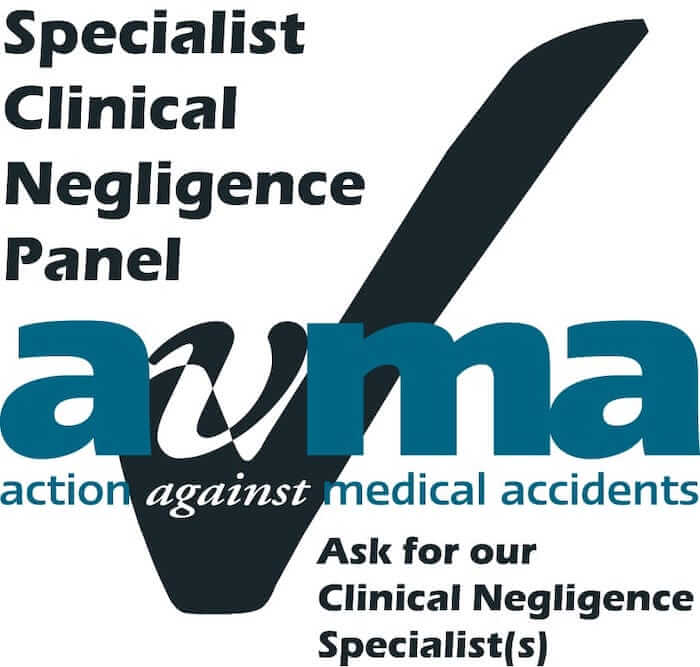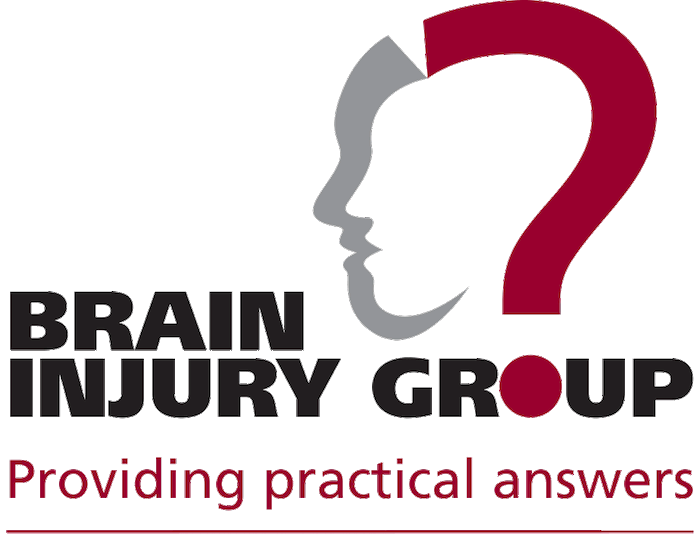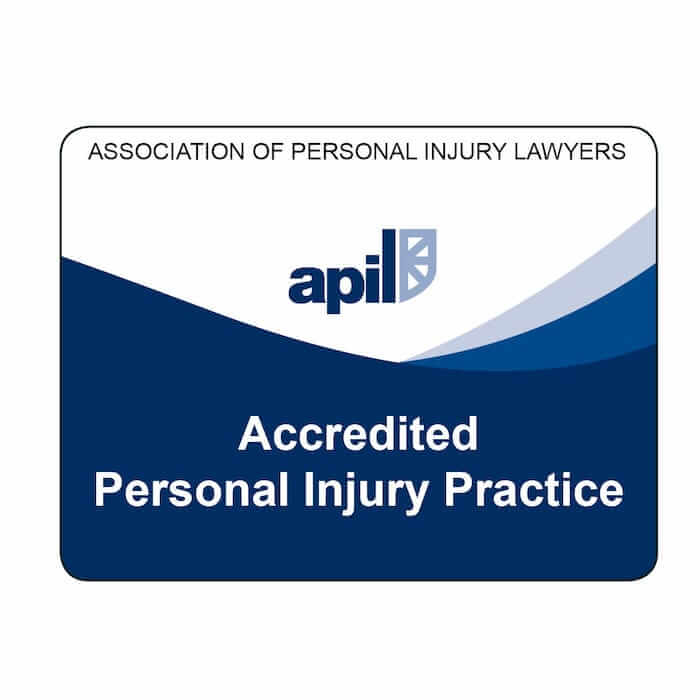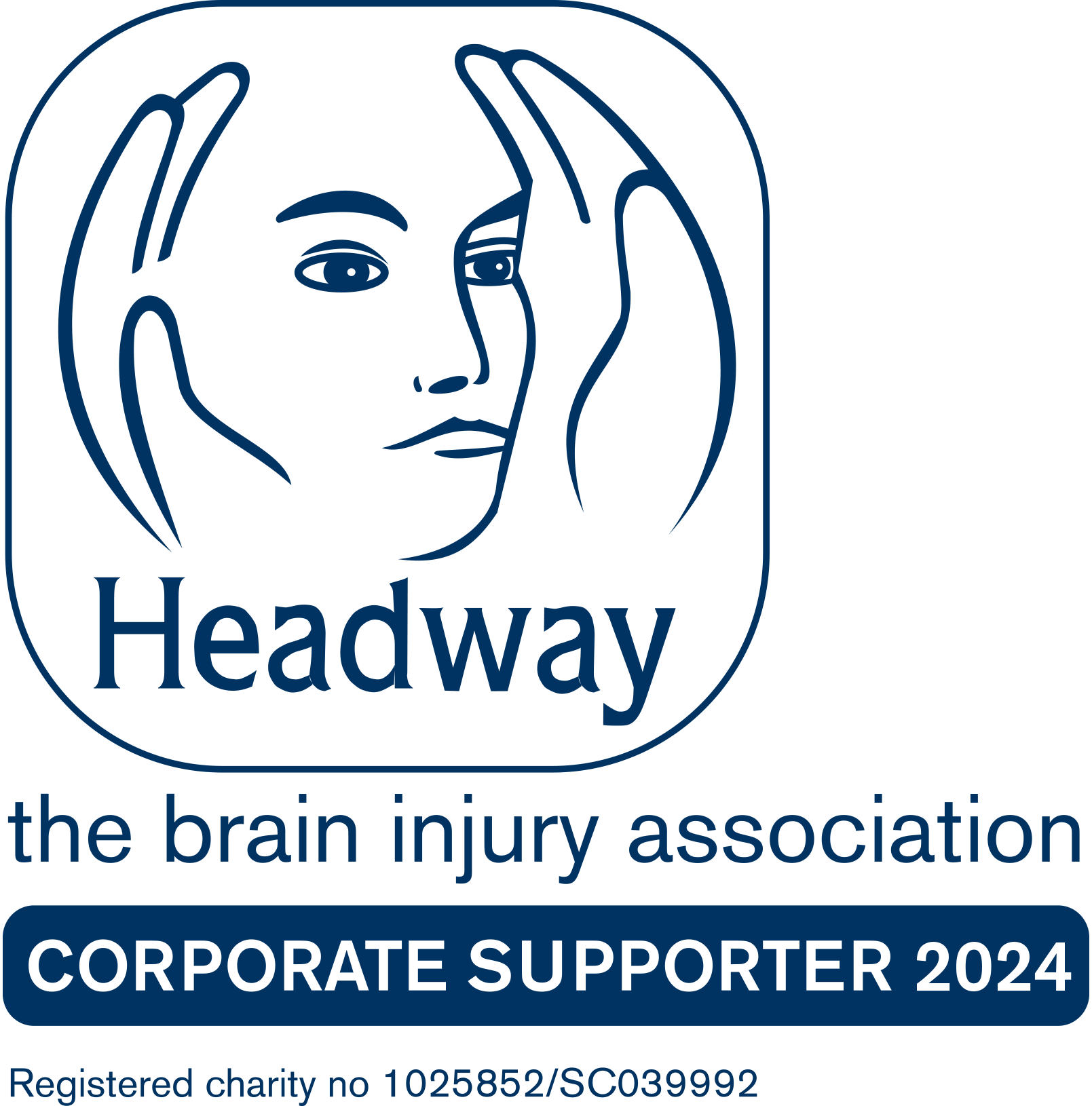 Medical Negligence
Medical Negligence Birth Injury Compensation Claims
The birth of a new baby is a very special time for parents and indeed the whole family. If things go wrong, either during the pregnancy or birth, the effects can be devastating.
If either the baby or the mother suffers an injury due to Medical Negligence then you will be entitled to make a claim for compensation.
Our Medical Negligence team have personal backgrounds in the medical field and understand the confusion and worry that a birth injury can present. We can help you with your claim and get the compensation and assistance you deserve.
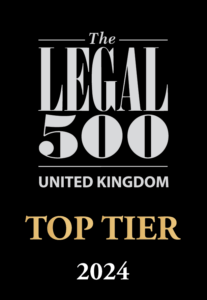 “Hodge Jones & Allen have a team of experienced and dedicated clinical negligence practitioners. They offer an excellent service to their clients and are highly empathetic. They persist in investigating claims where other firms might not.” – Legal 500, 2023
“Hodge Jones & Allen have a team of experienced and dedicated clinical negligence practitioners. They offer an excellent service to their clients and are highly empathetic. They persist in investigating claims where other firms might not.” – Legal 500, 2023
 The team has been ranked in the Chambers & Partners 2024 legal directory. The team was described as “professional and quick to respond to any questions. They have demonstrated skills and handle complex cases with sensitivity.”
The team has been ranked in the Chambers & Partners 2024 legal directory. The team was described as “professional and quick to respond to any questions. They have demonstrated skills and handle complex cases with sensitivity.”
Birth Injury Claims
We’ve dealt with a variety of Birth Injury claims, from dangers like Brachial Plexus and Erb’s Palsy, to injuries caused by delivery procedures. Some of our more common cases include:
Failure To Offer Caesarean Section
In some cases we have successfully argued that due to the size of the baby the mother should have been offered a C-section – which would have avoided the shoulder dystocia episode.
Failure To Perform The McRoberts Manoeuvre
This manoeuvre is taught to all doctors and midwives. When performed it eases the birth of the baby and hopefully avoids injuries such as Erb’s Palsy.
The Most Common Birth Injuries Are:
- Brachial Plexus
- Cerebral Palsy
- C-section Injuries
- Erb’s Palsy
- Group B Strep Infection
- Infant Shoulder Dystocia
- Instrumental Delivery Injury
- Kernicterus
- Wrongful Birth
Injuries To Mothers During Childbirth
Our specialist Birth Injury Solicitors have over forty years’ experience of acting for mothers who have suffered an avoidable injury before or during the birth of a child. We always recognise the impact that such injuries can have, both physically and psychologically, at what is meant to be a time of great celebration.
We understand that all births are different and that some deliveries may be more difficult than others. A number of our female Solicitors are also qualified doctors. They recognise that difficult decisions have to be made, but sometimes things can go wrong and a young mother can be left with an injury, possibly a life-changing one. This can make it very difficult to cope with a new born baby.
Childbirth is a well-studied traumatic experience for women’s bodies, yet modern medicine still has not fully understood how seriously injured , sometimes for the rest of their lives, some mothers are.
Many of the injuries suffered by mothers relate to incontinence or sexual problems – and our Solicitors recognise that these are not easy matters to discuss in the context of a legal claim.
"Partner of the company Emma Wray was with us the whole way through step-by-step keep us up-to-date it throughout would really recommend this company and Emma array as they are worth every penny"
What Do We Need To Investigate A Birth Injury Claim?
There are several ways we can begin investigating a Birth Injury claim. We will need access to a variety of reports and records as we start helping you. These include:
Medical Records
We will obtain the medical records for the mother and baby. We will assess these in-house – we are fortunate in that many of our solicitors are also medically qualified.
Detailed Statements
If we think the case has prospects of success, then we will take a detailed statement from you and any other witnesses who may have been present at the birth.
Instruct Medical Experts
We will then instruct experts to assess the claim. The types of experts required vary from case to case. Their reports will establish if there is a case that can be pursued.
What Do I Need To Prove To Win My Case?
A birth that has not gone entirely to plan can be distressing – many mothers hope to have a perfect birth. But if things don’t go to plan it does not mean you will automatically be entitled to compensation.
To bring a successful claim for medical negligence you will need to satisfy two legal tests known as ‘breach of duty’ and ‘causation’.
Breach of Duty
To establish there has been a breach of duty you will need to show that the medical treatment you received fell below a reasonable standard. A ‘reasonable’ standard of treatment is considered to be what you would expect to receive from a reasonably competent medical professional in obstetrics/gynaecology/midwifery.
Causation
To establish causation, you will need to show that the breach of duty directly caused you to suffer a physical or psychological injury that would not have otherwise happened.
What Can I Claim For Birth Injury?
Compensation for Birth Injury is made up of many different components.
General Damages
These are awarded for the Brain Injury itself and the communication and mobility problems that may result from this. The maximum award for general damages according to the Judicial College guidelines is £337,700. This is awarded for severe brain injury or tetraplegia.
Special Damages
These are the financial losses that flow from the injury such as adaptation of accommodation, care, physiotherapy, loss of earning etc. Please refer to the comprehensive list under the FAQs at the bottom of this page.
How Do I Fund My Case?
The majority of our Birth Injury cases are funded by Legal Aid. Other cases are funded by way of a conditional fee agreement, more commonly known as a No Win No Fee agreement. This means there is no financial risk to you.
Birth Injury Featured Case
A baby’s right shoulder became stuck during birth and he suffered Shoulder Dystocia, a right Brachial Plexus injury and subsequent Erb’s Palsy. As the delivery was high risk there should have been an Obstetrician present at the birth. If an Obstetrician had been called before he was delivered, our client may well have been delivered safely. Despite undergoing five surgical operations he was left with a shorter right upper limb and with limitation to his movement.
Settlement: A without prejudice settlement of £550,000 was achieved.
"The service I received was absolutely brilliant."
What types of birth injuries a baby can suffer?
- Birth trauma
- C-section Injuries
- Caput Succedaneum
- Cognitive Developmental Disabilities due to birth injuries
- Epidural Birth Injuries
- Fetal Lacerations
- Folic Acid Deficiency Anaemia
- Forceps Delivery Injury
- Group B Strep Infection
- Horner’s Syndrome
- Hydrocephalus
- Infant Bell’s Palsy
- Infant Bleeding of the Brain
- Infant Brain Ischemia
- Infant Broken Bones
- Infant Cephalohematoma
- Infant Chorloamnionitis
- Infant Cystic Fibrosis
- Infant Hypoxic Ischemic Encephalopathy
- Infant Meningitis
- Infant Shoulder Dystocia
- Infant Skull Fractures
- Infant Spina Bifida
- Infant Spinal Cord Damage
- Infant Subconjunctival Hemorrage
- Infant Torticollis
- Intellectual Disabilities in Babies and Children
- Kernicterus
- Klumpke’s Palsy
- Maternal Infections
- Meconium Aspiration Syndrome
- Neonatal Stroke
- Persistent Pulmonary Hypertension of the Newborn
- Placental Birth Injuries
- Vacuum Extraction Injury
- Wrongful Birth
The most common type of Birth Injury is Cerebral Palsy.
What Can I Claim Under Special Damages?
- Care from mother and father. This is sometimes called ‘gratuitous care’. The parents of a child with Cerebral Palsy are entitled to claim for the additional care that their child needs due to the Defendant’s negligence. This is often a very substantial sum because it includes both past and future care. We will assess each case individually as no two claimants are ever in the same situation. We will calculate the support that you child has received and will require in the future. This claim can be made in addition to a claim for professional carers (see below).
- Professional care. Although the mother and father often want to be hands on carers for their child, the reality is that they will need assistance from paid carers. Depending on the level of disability, a team of carers will often be needed, perhaps working on a rota basis. Carers employed on a rota on day and night shifts are, of course, a very considerable cost. This part of the case is usually of the highest value. It is an area for dispute between the experts and need careful assessment by the Lawyers instructed by the Claimant.
- Accommodation. Children with Cerebral Palsy may be wheelchair dependent as a result of their condition. As a result they will need to claim compensation for new alternative accommodation or have adaptations made to their current home.
A claim for new accommodation is often the first issue that needs to be addressed if negligence is admitted by the defendant. Often, we would seek an interim payment at an early stage to assist the family.
Often we would seek an interim payment at an early stage to assist the family.
- Physiotherapy. Children with cerebral palsy need intensive physiotherapy. This may be a need they have when they are young of the claim involve a lifelong requirement for physio. The claimant is entitled to claim for such costs in the private sector and does not have to rely on the limited physiotherapy which might be offered by the NHS.
- Occupational therapy. Occupational therapists advise and assist claimants with everyday activities – such as toileting issues. They can develop strategies to assist with independence. This is usually claimed for on a private basis so that the family does not have to rely on the NHS.
- Case manager. Many families find that they need help in managing the care of their child. They need the services of a Case Manager. They will be responsible for coordinating the carers, physiotherapists, occupational therapists and speech and language therapists. They can make all the necessary arrangements in terms of managing recruitment of staff, managing payroll and dealing with HR issues. They provide an incredibly useful service to both the parents and staff and act as a hub to circulate information.
- Loss of earnings. Mild Cerebral Palsy may limit the job opportunities available to the Claimant. A more severe form of Cerebral Palsy may mean that they will never be able to work. In these cases the claimant will be entitled to claim for loss of earnings. In some cases the court will consider the occupations of the mother, father or siblings to establish what the claimant’s likely earnings may have been. Future wage losses can be claimed from 18 to retirement age, so this aspect of the claim can be substantial.
- Aids and equipment. A claim can be made for mobility aids, such as wheelchairs or other specialist equipment. Again, it is recognised that the NHS provision is limited and the claimant is entitled to claim for aids and equipment costs on a private basis.
- Private therapies. Many families find that the NHS is limited in what it can offer their child. This may be due to geographical issues or a lack of resources. If this is the case then the family can make a claim for the costs of such therapy in the private sector. This might be any kind of therapy – from orthopaedic surgery to sensory therapies.
- Transport. Claimants will often need a specialist vehicle such a Volkswagen Caravanelle, a Mercedes Vito or other similar type of vehicle. The vehicle may well need to be adapted to the needs of the claimant. When submitting the compensation case, Hodge Jones & Allen will include a claim for the need to replace the vehicle on a regular basis over the claimant’s lifetime.
Can I Bring A Claim On Behalf Of My Child?
Any injured person under 18 is considered to be a child. They are considered unable to have ‘capacity’ to conduct the claim themselves and deal directly with Solicitors.
A claim involving a child is therefore conducted by a litigation friend, who acts on the child’s behalf. A litigation friend is often one of the child’s parents or a guardian, however anyone that the Court deems suitable can be a litigation friend, for example a relative or family friend, a Solicitor or someone who has a Lasting Power Of Attorney.
Before a Court appoints someone as a litigation friend, it will assess whether that person meets certain criteria to ensure they can do the job properly. The Court must be satisfied that the person in question:
- does not have any conflicting interests with the child’s interests
- can fairly and competently conduct proceedings on the child’s behalf
- agrees to pay any costs that the child may be ordered to pay
If you wish to apply to be a child’s litigation friend, you must file and serve a certificate of suitability. This is a form which asks you to formally consent to act as a litigation friend, and sets out your suitability for the role.
If the child reaches the age of 18 during the claim, the litigation friend’s authority to act on their behalf ceases. All the parties involved in the proceedings will need to be notified, and the former child will need to sign a statement that they intend to carry on with the proceedings.












